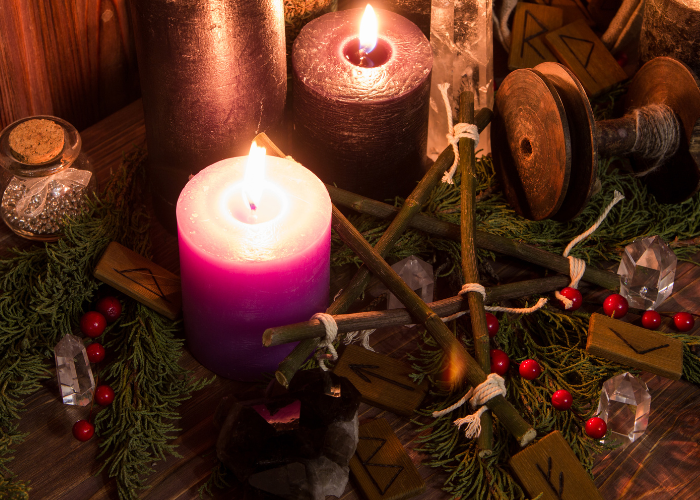Voodoo, also known as Vodou or Vodun, is a religion that originated in West Africa and later spread to the Americas, particularly Haiti. Throughout history, voodoo has been subjected to numerous misconceptions and stereotypes, particularly regarding its association with black magic spells. In this article, we will delve into the world of voodoo black magic spells, shedding light on their nature, purpose, and cultural significance.
1. Understanding Voodoo
Voodoo is a complex belief system that combines elements of African religions, Christianity, and indigenous practices. It revolves around the veneration of spirits and ancestors, rituals, and the use of various tools and objects to communicate with the spiritual realm. Voodoo encompasses both positive and negative aspects, with black magic spells falling into the latter category.
2. The Purpose of Black Magic Spells
Black magic spells within voodoo are controversial and often misunderstood. They are primarily used to inflict harm upon others, seek revenge, exert control, or protect oneself from enemies. However, it is crucial to note that practitioners of voodoo emphasize the principle of “harm none,” which encourages them to use their powers responsibly and ethically.
3. Elements of Voodoo Black Magic Spells
a. Rituals and Offerings: Voodoo black magic spells typically involve elaborate rituals and offerings to petition the spirits. These rituals often include the use of candles, herbs, animal sacrifices, and symbolic objects.
b. Spells and Incantations: Practitioners of voodoo employ spells and incantations to communicate their intentions and desires to the spiritual realm. These spells may involve chants, prayers, or the use of sacred verses.
c. Talismans and Amulets: The use of talismans and amulets is prevalent in voodoo black magic spells. These objects, such as dolls or charms, are believed to contain the power to influence the targeted individual’s life or well-being.
4. Misconceptions and Stereotypes
Due to its portrayal in popular culture and media, voodoo and its black magic spells have often been subject to misconceptions and stereotypes. It is essential to understand that voodoo is a legitimate religion practiced by millions worldwide, and black magic spells are just a small aspect of its overall belief system.
5. Cultural Significance
Voodoo holds significant cultural significance, particularly in Haiti, where it is recognized as an official religion. It is intertwined with the country’s history, politics, and daily life. Voodoo rituals, including black magic spells, serve as a means of empowerment and resistance for many Haitians, providing a sense of unity and strength within their communities.
6. Ethical Considerations
It is crucial to approach the subject of voodoo black magic spells with respect and understanding. While some may view black magic spells as manipulative or harmful, others see them as a last resort to seek justice or protection. It is essential to remember that intent and context play a significant role in the ethical use of any form of magic or spiritual practice.
7. Expert Guidance and Responsible Practice
If one is interested in exploring voodoo black magic spells or any other form of magic, seeking guidance from an experienced practitioner is essential. These individuals can provide the necessary instruction, ensuring responsible practice and reinforcing the importance of ethical considerations.
Conclusion
Voodoo black magic spells are a relatively small aspect of the broader voodoo belief system. While they may be shrouded in mystery and misunderstood, it is crucial to approach the subject with respect, cultural sensitivity, and a willingness to learn. Understanding the purpose, elements, and cultural significance of voodoo black magic spells enables us to appreciate their role within the religion and the communities that practice them. Ultimately, with expert guidance and responsible practice, one can gain a deeper understanding of voodoo and the diversity of spiritual beliefs that exist in our world.

